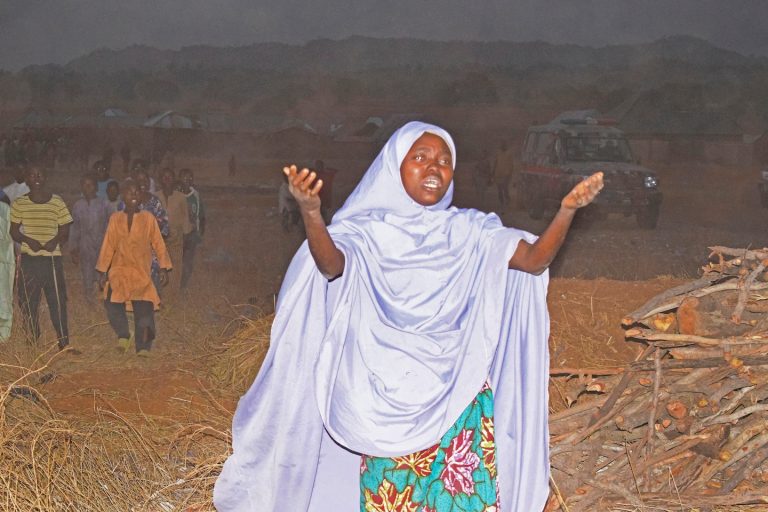About 200 people, many of them women collecting firewood, were kidnapped on March 1 in Borno state, where residents have long been terrorized by Boko Haram, an Islamist extremist movement, the United Nations, residents and local officials said.
A second mass kidnapping occurred on Thursday hundreds of miles away in Kaduna state, according to local media reports, which said at least 100 students had been kidnapped from their school. In this region of northwestern Nigeria, bandits often carry out such raids.
In his statement on Friday, issued through his spokesman, the president said he received briefings from security leaders about the two incidents, but did not provide details about the identity of the attackers or the number of people kidnapped. He expressed his confidence in saving the victims.
“There is nothing else acceptable to me and the family members of these kidnapped citizens,” Tinubu said. “Justice will be served decisively.”
Details of the first kidnapping are still emerging, partly because of communication problems in the area, close to Nigeria's border with Cameroon, and because there are conflicting reports about how many people were kidnapped and whether Boko Haram carried out the kidnapping. Or its rival, the Islamic State in West Africa (ISWAP).
But analysts said the event in Borno appeared to be the largest kidnapping of women and girls by an Islamist extremist group since Boko Haram kidnapped 276 girls in the town of Chibok in 2014, sparking international protests and efforts to return the girls — dozens of them. She remains missing even a decade later.
Gambaro Ngala resident Modo Goni estimated that at least 180 women collecting firewood had been taken from the area.
Goni said that when residents went to look for the women, they only found the carts they used to collect firewood. He said that they continued to search for the women and girls, and traveled to three or four other villages, but they did not find anything, and in the end they collected the women's belongings and returned to their homes, where the families had not yet received news of their abduction.
“what can they do?” he said in a phone interview. “They pray every day for their parents to return.”
Although the number of people kidnapped is estimated at more than 200, Mohammed Malik Fall, the United Nations Humanitarian Coordinator in Nigeria, said in a statement. He said the women came from multiple camps for internally displaced people in the area.
“While an unspecified number of older women and children under the age of 10 have been released, dozens of internally displaced people remain missing, according to protection partners,” Vaal’s statement said.
He noted that more than two million people in Borno and neighboring Adamawa and Yobe states have fled to “fortified towns where they have few, if any, options for making a living,” and those who decide to venture outside the city limits to work do so “abroad.” “Great danger.”
Malik Samuel, a research consultant at the Institute for Security Studies, based in Abuja, said that based on the location of the kidnappings in Borno, they were likely carried out by Boko Haram's JAS faction.
He added: “The last kidnapping of this magnitude was of Chibok girls.” “The reason they have not been able to carry out such kidnappings since then is because of the success of the security forces.”
He said that although Boko Haram remains larger than is sometimes widely acknowledged — he estimated its membership at about 2,000 — it controls a much smaller area than it once did, and will have limited options regarding It's about where you take women and girls. Its movement will be restricted by both security forces and the Islamic State in West Africa, a rival branch with which the group regularly clashes.
The Borno state government recently said that 95% of people who support Boko Haram's ideology have surrendered or died.
In the case of the Kaduna kidnapping, more than 500 miles away, locals said attackers surrounded a government-owned school in the town of Korega on Thursday as the school day began, according to the Associated Press. The authorities said that 100 children were kidnapped, while the school principal estimated the number at 287 children.
In a statement, Christian Mondwat, UNICEF Representative in Nigeria, described the kidnapping as “part of a worrying trend of attacks on educational institutions in Nigeria, especially in the northwest, where armed groups have intensified their campaign of violence and kidnapping.”
“The alarming frequency of such incidents across the country indicates a crisis that requires immediate and resolute action from all levels of government and society,” Mondwat said.

